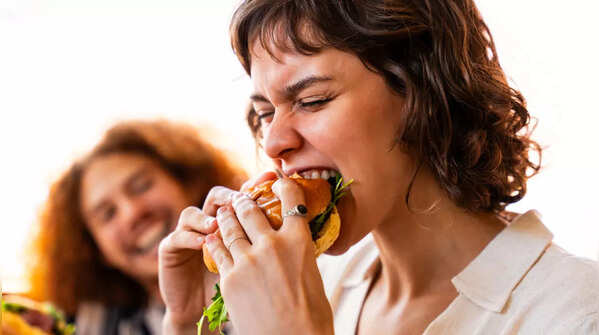
1/6
Eating too fast? The real culprit is NOT how you eat
Ever scarfed down a burger, racing the clock before your next meeting? We've all been there, whether it’s squeezing in lunch during a hectic workday or rushing through errands. Eating fast is, however, doing more harm than good. While we all have thought that eating fast is linked with how you eat, a new study suggests otherwise.
As obesity rates continue to climb worldwide, researchers are looking for accessible, everyday strategies to promote healthier eating. A Japanese study from Fujita Health University found that what you eat matters more than how you eat it. The study was published in the journalNutrients.
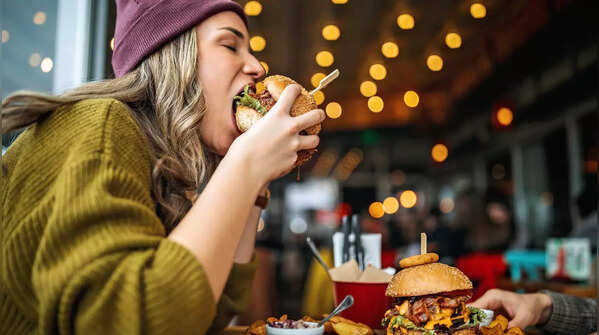
2/6
What you eat matters more
Health experts often suggest eating slowly to support digestion and weight control. Yet, many people still find it challenging to incorporate this practice into their daily lives. To overcome this struggle, the researchers investigated the reason behind it. And guess what? They found that the type of meal we choose may matter more than the order in which we eat it, when it comes to slowing down the speed of eating.
“Eating slowly is widely recommended for obesity prevention. But people often don’t know how to implement this advice. Our study shows that simply choosing the right type of meal—such as a bento instead of fast food—can naturally extend meal duration and encourage more mindful eating,” Prof. Iizuka, the lead researcher from Fujita Health University, Japan, said in a statement.
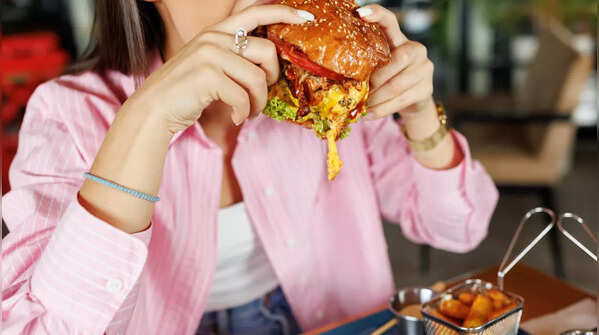
3/6
The study
The research team studied 41 adults (18 males and 23 females) aged 20 to 65. Each participant consumed three types of meals: pizza, a hamburger steak bento with vegetables eaten first, and the same bento with vegetables eaten last. Using a wearable chewing sensor and video analysis, the researchers measured each participant's meal duration, number of chews and bites, and chewing tempo.
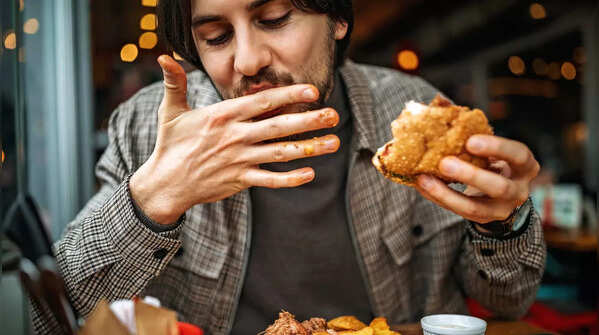
4/6
The findings
What the researchers discovered was striking. People in the pizza group ate significantly faster than bento, with shorter meal durations and fewer chews, regardless of whether vegetables were eaten first or last.
The participants who had the bento meals consumed them with chopsticks. This meal had individual components like rice, vegetables, and meat, which led to longer meal times and more chewing.
What was more surprising was that the number of bites remained consistent across meal types. The chewing tempo showed only slight but statistically significant differences.
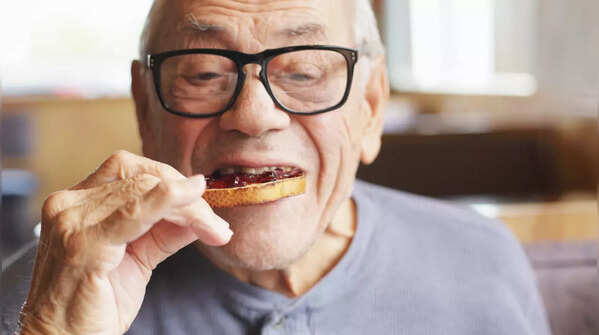
5/6
Eating speed: Men vs women
The researchers found that men generally ate faster and chewed less than women. However, the overall trend was similar in both groups - Participants with bento meals took a longer time to eat and required more chewing. Older participants ate faster than younger ones. This could be due to changes in dental health or chewing ability.
The study found no association between BMI and meal duration, contrary to the common stereotypes. However, the researchers found that people with obesity may gravitate toward ultra-processed, easy-to-eat foods like pizza, which could lead to faster meals and overeating.

6/6
Expert opinion
“One key factor affecting meal speed is how the food is served and eaten. Bento meals are served in small portions that need to be picked up with chopsticks, which slows down the process. In contrast, pizza is eaten by hand and is often designed to be eaten quickly. This difference in serving style plays a big role in how fast people eat,” Prof. Iizuka explained.
They also stressed that the chewing tempo, or how fast people chew, is controlled by the brain’s natural rhythm and is less likely to change. However, the number of chews and the time spent chewing can vary based on the meal type. For better digestion and weight control, one must eat slowly and take more chews and smaller bites. “If we want to help people eat more slowly, we should focus less on telling them how to chew and more on helping them choose meals that require slower, more deliberate eating; this could be a simple yet powerful tool in our fight against obesity and related diseases,” Prof. Iizuka added.
Follow Us On Social Media

 8 hours ago
39
8 hours ago
39




























 English (US)
English (US)